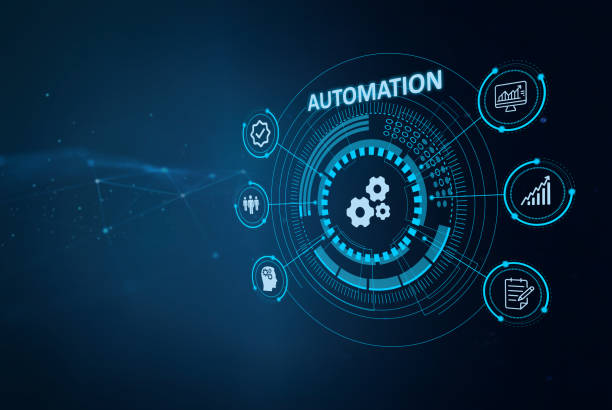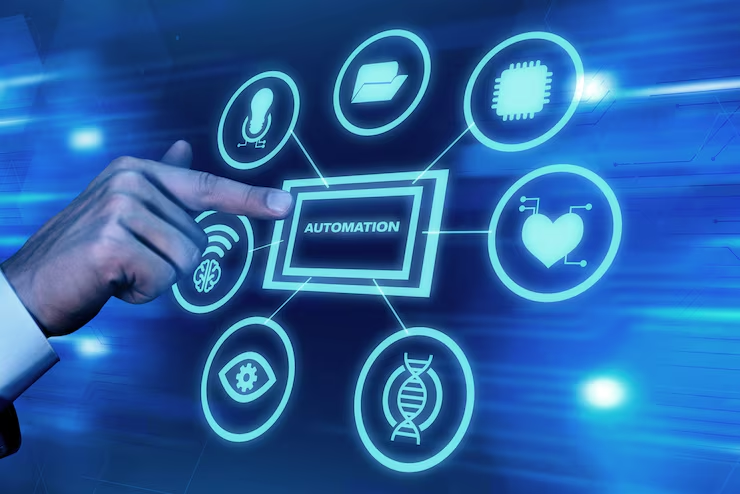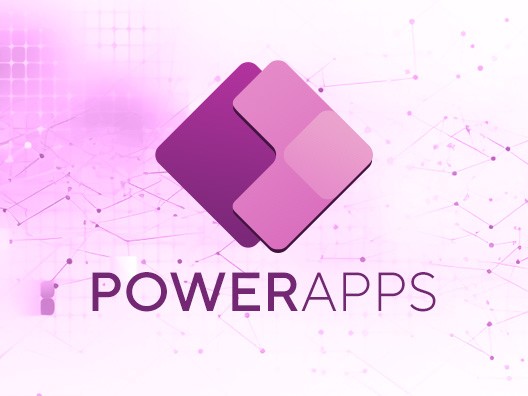The future of work is being reshaped at an unprecedented pace, driven by advancements in technology. Automation, artificial intelligence (AI), machine learning (ML), and other digital innovations are transforming industries, redefining job roles, and creating new opportunities. As these technologies continue to evolve, so too do the skills required to thrive in the modern workforce. Let’s explore how technology is influencing the future of work and what it means for professionals and organizations alike.
Automation: Streamlining Processes and Redefining Roles
Automation has become a cornerstone of modern business operations. By leveraging software, robotics, and AI, companies can automate repetitive and time-consuming tasks, from data entry to manufacturing processes. According to a McKinsey report, up to 30% of tasks in 60% of occupations could be automated, freeing up human workers to focus on more strategic and creative endeavors.
While automation increases efficiency and reduces costs, it also raises concerns about job displacement. Roles that involve routine, manual, or predictable tasks are most at risk. However, history shows that automation often creates new jobs even as it eliminates others. For example, the rise of Automated Teller Machines (ATMs) did not eliminate bank tellers but shifted their roles toward customer service and advisory functions.
Artificial Intelligence: Enhancing Decision-Making and Innovation
AI is revolutionizing the way businesses operate by enabling machines to perform tasks that traditionally required human intelligence. From predictive analytics to natural language processing, AI is being used across industries to improve decision-making, personalize customer experiences, and drive innovation.
For instance, AI-powered tools like ChatGPT, DeepSeek and other large language models are transforming content creation, customer support, and even software development. A report by PwC estimates that AI could contribute up to $15.7 trillion to the global economy by 2030, highlighting its transformative potential.
However, the rise of AI also necessitates a workforce that understands how to work alongside these systems. Employees need to develop skills in data literacy, AI ethics, and the ability to interpret AI-generated insights.
Machine Learning: Driving Personalization and Efficiency
Machine Learning, a subset of AI, is enabling systems to learn from data and improve over time without explicit programming. This technology is behind many of the personalized experiences we encounter daily, from Netflix recommendations to fraud detection in banking.
In the workplace, ML is being used to optimize supply chains, predict market trends, and even assist in hiring decisions. For example, LinkedIn uses machine learning algorithms to match job seekers with relevant opportunities, streamlining the recruitment process.
As ML becomes more pervasive, demand for professionals with expertise in data science, programming, and algorithm design is skyrocketing. According to the World Economic Forum, data analysts and scientists are among the fastest-growing roles globally.
Evolving Skill Requirements: The Rise of Hybrid Roles
As technology reshapes the workplace, the skills required to succeed are also changing. While technical skills like coding and data analysis are in high demand, soft skills such as creativity, adaptability, and communication are equally important. The future workforce will need to be hybrid—combining technical expertise with human-centric skills. For example, a marketing professional today might need to understand data analytics to measure campaign performance, while also possessing the creativity to craft compelling narratives. Similarly, a healthcare worker might use AI tools to diagnose patients but rely on empathy to provide compassionate care.
The World Economic Forum’s Future of Jobs Report 2023 emphasizes that 44% of workers’ core skills will be disrupted in the next five years, underscoring the need for continuous upskilling and reskilling.
Preparing for the Future: What Organizations and Individuals Can Do
To navigate the technological shifts shaping the future of work, both organizations and individuals must take proactive steps.
- Companies should invest in upskilling programs, foster a culture of innovation, and prioritize ethical AI and automation practices. Collaboration between humans and machines should be at the heart of business strategies.
- Professionals should embrace a growth mindset, seek out learning opportunities, and stay informed about emerging technologies. Platforms like Coursera, Udemy, and LinkedIn Learning offer courses on everything from AI to Emotional Intelligence.
In conclusion, technology is undeniably transforming the future of work, bringing both challenges and opportunities with it. Automation, AI, and Machine Learning are streamlining processes, enhancing decision-making, and creating new roles, while evolving skill requirements demand a commitment to continuous learning. By embracing these changes and preparing for the future, both organizations and individuals can thrive in the digital age.
As the saying goes, “The best way to predict the future is to create it.” The future of work is here—let’s shape it together.
Sources:
McKinsey & Company. (2023). The Future of Work After COVID-19.
PwC. (2023). AI’s Impact on the Global Economy.
World Economic Forum. (2023). Future of Jobs Report 2023.
LinkedIn. (2023). Global Talent Trends Report.
Coursera. (2023). Top Skills for the Future of Work.







